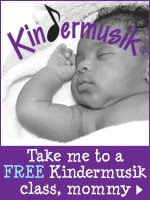This is a distillation of “Why Music Moves Us” by Karen Schrock, Scientific American, July 15, 2009
I don’t think I’ve ever heard of a person who hates music. Most of us have some music we love and some that gets on our nerves—I currently have a song I dislike that’s been stuck in my brain for days—but that’s another blog. Overall, human beings are inclined from birth to respond positively to music. What’s up with that?
From the moment of conception, our development has at least one consistent sound track, the rhythmic lub-dub, lub-dub, lub-dub of our mother’s heart beat. Our brains develop to that musak. Cutting edge brain research shows that brain systems used for language, emotion and movement respond to music. Music processing “hijacks” these systems and thus almost every area of our brain plays some part in our response to music.
 Music & Emotion
Music & Emotion
Music activates many diverse brain circuits simultaneously, especially the limbic system, which is related to emotion. Research strongly indicates that music evokes similar mood and feeling across age, race, gender, cultural lines. For example, in one study a broad spectrum of people identified a song as happy, sad or scary.
Scientists concluded that music reliably conveys the intended emotion to all listeners. No other mode of communication has this power. Music has a unique and amazing ability to transcend most differences, including cognitive disabilities such as autism. One study revealed that autistic children, whose ability to pick up emotional cues in social settings was severely impaired, nonetheless were able to recognize feelings in music just the same as non-autistic children.
It follows that music also reliably creates a social bond across differences. In most cultures, music is a communal event and elicits not only an emotional response that is shared, but a physical one—dancing, clapping, swaying, marching. Motor regions of the brain such as the cerebellum, used for processing rhythm, are stimulated.
Neuropsychologist Robert Zattore said “I can see how rhythm and physical action would have mutual resonance in the nervous system. All sound is produced by movement. When you hear a sound it’s because something has moved.” The rhythm of song, Zattore says, creates a pattern that the brain can understand and then organize muscles to join in. Music making takes people communicating and cooperating. It’s a “social glue.”
In addition to the communal nature of music, music influences the physiological systems thereby making people feel something—more hyped-up, more calmed down, more sad or happy. A parent sings a lullaby to settle an anxious infant. Aerobics instructors choose upbeat music which really does get the blood pumping. In a study done with Alzheimer’s patients, agitation was significantly reduced when a CD of their favorite songs was consistently played for them.
Music appreciation seems to be hard-wired into our brains for our physical and social benefit and emotional enjoyment. Kindermusik is an environment which maximizes all these elements. Kids are exposed to a broad spectrum of music. They learn to copy and produce rhythm. They sing happy, fast songs and slow, sad songs. They develop a sense of community within their classes. Both parent and child come away feeling better! They take their music home with them. What’s not to like about that?






No comments:
Post a Comment